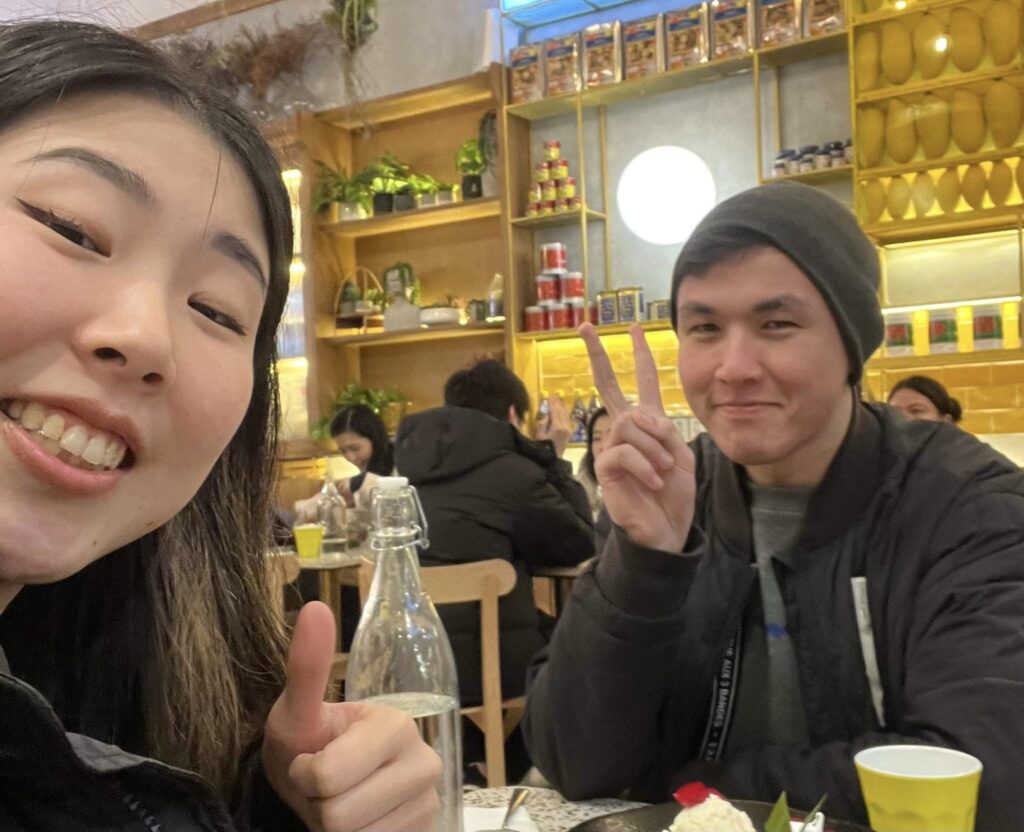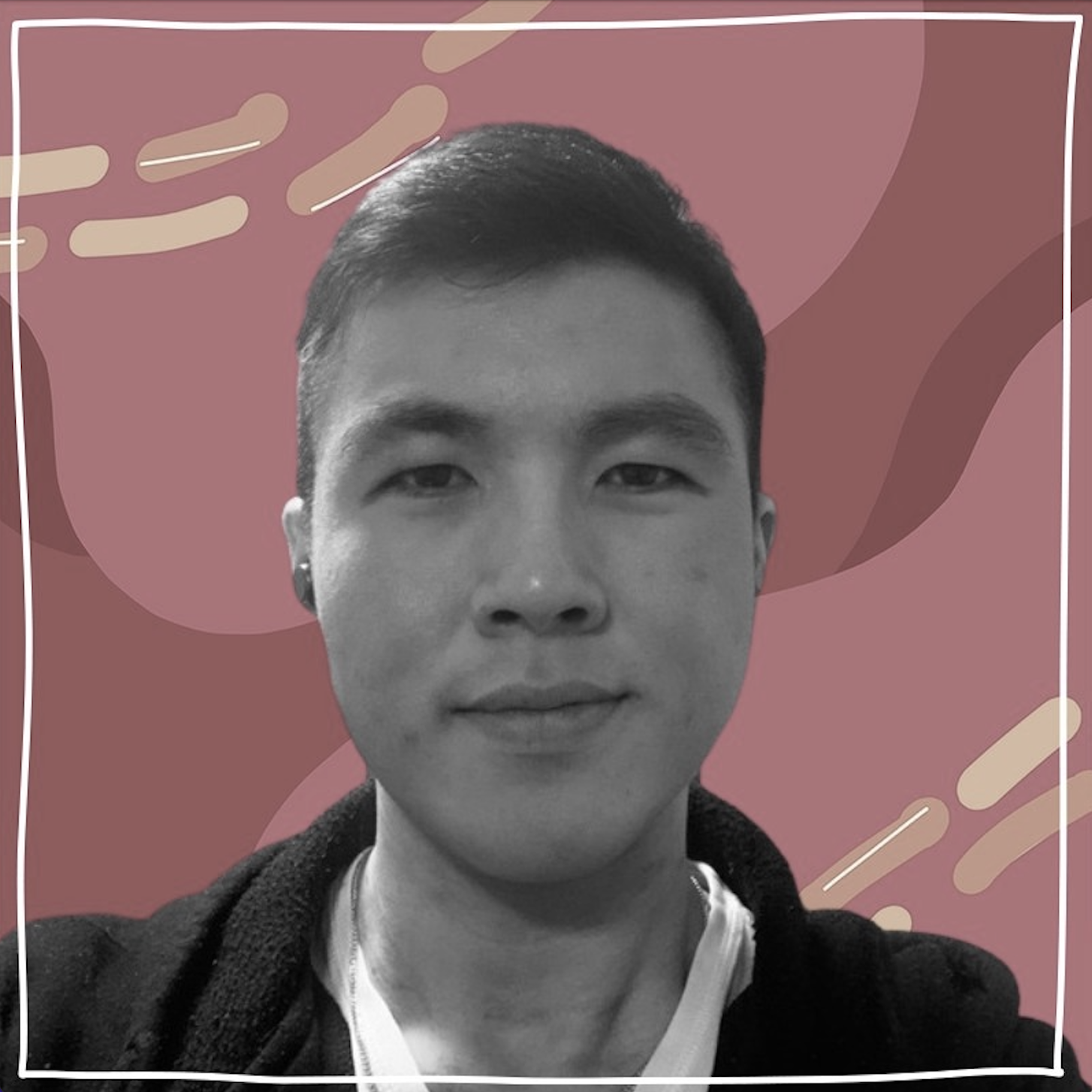Zoe Sun (B. Commerce / Economics 2022) – Graduate Spotlight
Posted on: February 12, 2023
Post Category: Student Experience

Conveniently, I met Zoe through my involvement with the UNSW Economics Society. When I was a part of the UNSW Economics Society, Zoe was the Vice President of Events and later she progressed into the President role.
I’m grateful to have worked alongside her; she’s very dedicated and she’s a good friend. Her involvement in extracurriculars and work experience, throughout the years I’ve known her, has been admirable.
I figured that her insights would be valuable to incoming students, given that her Uni experience is quite diverse. Enjoy the read!
– Jason Khu

Jason:
So today we have a special guest: Zoe Sun.
Thank you, Zoe, for sharing your experience with us – particularly the students who are going to read this sometime in the future!
Before we get into it, for all the readers, can you please introduce yourself? And can you tell us what you studied, and what your plans are after Uni?
Zoe:
Of course! And thank you Jason for setting this up for incoming students – I think this is such a great initiative that I would’ve loved as a student fresh out of high school.
Hey there! I’m Zoe and I am an incoming graduate at Bank of America in the Corporate Banking team. I studied a double Bachelor’s degree in Commerce and Economics at UNSW, and during my time at university, I was involved with the UNSW Economics Society as President in 2021 and the UNSW Consulting Club competing in several international case competitions.
Outside of work and study, I enjoy travelling and I also volunteer for the homeless, providing food, laundry and shower services.
Jason:
Thanks, Zoe!
So, for context, the Uni for students guide is about how to make the most out of the Uni experience and how to start building your career – and to grow personally as well.
How would you describe your Uni experience in three words, and what were some of the key highlights from your experience?
Zoe:
Exhilarating, stressful and formative.
I’m not going to lie, with the uncertainty and possibility that comes with life after study, Uni can feel like a stressful experience in between getting good grades, applying for internships and juggling work with the rest of life.
However, it will probably also be some of your best years. Uni is a time where you’ll get the opportunity to meet people, make friends and have the freedom to take your life in whatever direction you wish.
For me, some of the key highlights of my experience include…
- Landing my very first internship at American Express as a marketing intern. For me, it represented my first real move from odd part-time gigs into gaining real-world business experience.
- Representing UNSW in an international case competition. Through the UNSW Consulting Club, I had the opportunity to compete against Universities around the world. Some of the best memories I have of Uni are the ones staying up in the middle of the night with my teammates trying to make a 24 hour deadline, everyone delirious from the lack of sleep and overdosing on coffee.
- Living away from home and completing my final semester at the Copenhagen Business School in Denmark. This was one of the best experiences during my time at Uni, meeting people from all over the world, forming lifelong friends and learning to live in a completely new city with different customs, cultures and surroundings.
Jason:
That’s awesome! Sounds like you got a lot of value out of your experience. And I do agree that Uni can be stressful – sometimes I forget that…
I saw that you got to gain experience at companies like EY, Westpac and Bank of America. And, not only that, you were pretty involved with extracurricular activities at Uni.
Would you say that your Uni experience helped you build your career and land your roles – if so, how? And did you get any value, from your Uni experience, added to your personal life?
Zoe:
100 per cent. The Uni experiences you accumulate, such as involvement with extra-curriculars and getting good grades, all demonstrate to your employer that you have the professional skills to perform in the workplace.
Having relevant work experience is important. However, Uni experiences like managing a student society can show an employer that you have strong skills not easily obtained as junior staff such as leadership and time management.
Other experiences such as placing in a case competition could highlight your public speaking skills and ability to be persuasive, and participation in team sports could illustrate your ability to be a team player.
These collective experiences can help bolster your work experiences and paint a better overall picture of you as an applicant and your fit with the company.
Aside from the career component, being involved with Uni experiences or any kind of extra-curricular will enrich your Uni years with friends, memories and experiences.
Jason:
While we’re still talking about work, you ended up getting many internships/opportunities to build your work experience.
What are some (say, three to five) application tips and tricks that have helped you when you were applying for these roles? This can be at any stage of the application process (when the posting gets shared, the written application, psychometric test, interview…)
Zoe:
- Connect with current employees at the firm beforehand.
Also known as a coffee chat, receiving a firsthand account of the firm can provide you insights into the kind of work and people at the firm. This can be helpful in elucidating the value you can bring to the role, as well as allowing you to stand out during the interview. - Treat the interview as a 2-way conversation.
Cracking a joke can be a great way to break the ice and relax the tone of the interview to one where you feel more comfortable. Asking your interviewer questions can also show that you’re engaged and genuinely curious about the company and what working with the company is like. It also helps alleviate the pressure a little from always having to answer questions. - Get a friend and simulate the interview.
Interviewing is like a muscle that needs to be trained, and there is no better way to develop that muscle than practice. By simulating the real conditions on the day, such as answering questions you didn’t prepare for, or having another person from you across the table, can help the real interview feel easier.
Jason:
Those are really helpful tips, Zoe. The coffee chat tip is one I often use as well.
To follow-up on your response… what are some (say, three to five) tips you have learnt that helped you make the most out of those internship/work experiences?
Zoe:
- Set up individual coffee catch-ups with the team in your first 2 weeks.
This is a fantastic way to settle into a new job, by gauging the culture of the team, gaining an understanding of the business and forming interpersonal relationships. It will help you adjust to the working environment quicker and help you be a familiar face in the office that colleagues may feel more comfortable reaching out to for work.
- Be proactive in asking for work.
As an intern, you may not always be given work immediately. Demonstrate your value to the team by being proactive and asking colleagues if there is anything you can help them with, even if its a small task. Over time, you build trust and familiarity with your colleagues, and giving you work becomes a natural inclination. - Ask questions.
As the intern, you’re allowed to not know anything and your colleagues also don’t expect you to immediately know how the business works. By asking questions, you can clarify the requirements of a task to ensure that you have understood it correctly, and it can also show your manager that you are engaged.
Jason:
Thanks, Zoe!
Now, a (kind of) unfortunate part of student life is that you have to wing it sometimes. It is a time for growth and creating memories, but it’s also a time for making mistakes and figuring out what you really want.
Were there any key learnings from your experience – that might be helpful for incoming students? And do you have any regrets from your experience?
Zoe:
I don’t believe in regrets – every choice you make is for a reason and there is something to be learnt about yourself with every decision.
Looking back at my time in Uni, I wish I had slowed down and taken the time to explore my interests and create meaningful memories with my friends.
For me at least, it was easy to feel the pressure of everyone else getting further in life and feeling the need to keep up. I would tell my younger self to treat Uni as a period of freedom and an opportunity to learn and expand your mind.
Asking yourself “What sort of career do I want to have?” and “What do I need to do to get there?” are very important questions that any student should seriously consider throughout their time at Uni.
But what I think you should ask yourself first is “What kind of life do I want to lead?” and “What kind of person do I want to be?” and then any questions about career will naturally flow from there.
Jason:
Thank you again, Zoe, for taking the time to contribute to the guide.
Before we end this, do you have any (more) general advice for the incoming students?
Zoe:
Don’t be afraid to jump on opportunities when they come, put yourself out there and make the most out of your time at university. That being said, remember to enjoy life outside of Uni and chasing the next line on your CV. Have fun!

About the author
Jason Khu is the creator of Data & Development Deep Dives and currently a Data Analyst at Quantium.
Notice:
Let me know if you want a resume review from me.
I have written a Data Analyst resume checklist, which will be free for you to read when my Data Analyst Guide gets released on the 3rd of June, 2024.
But if you want specific feedback from me, delivered in a short 30-minute to 1-hour call...
Please let me know through LinkedIn, and I'll see what I can arrange!
Pricing TBD.
- Jason